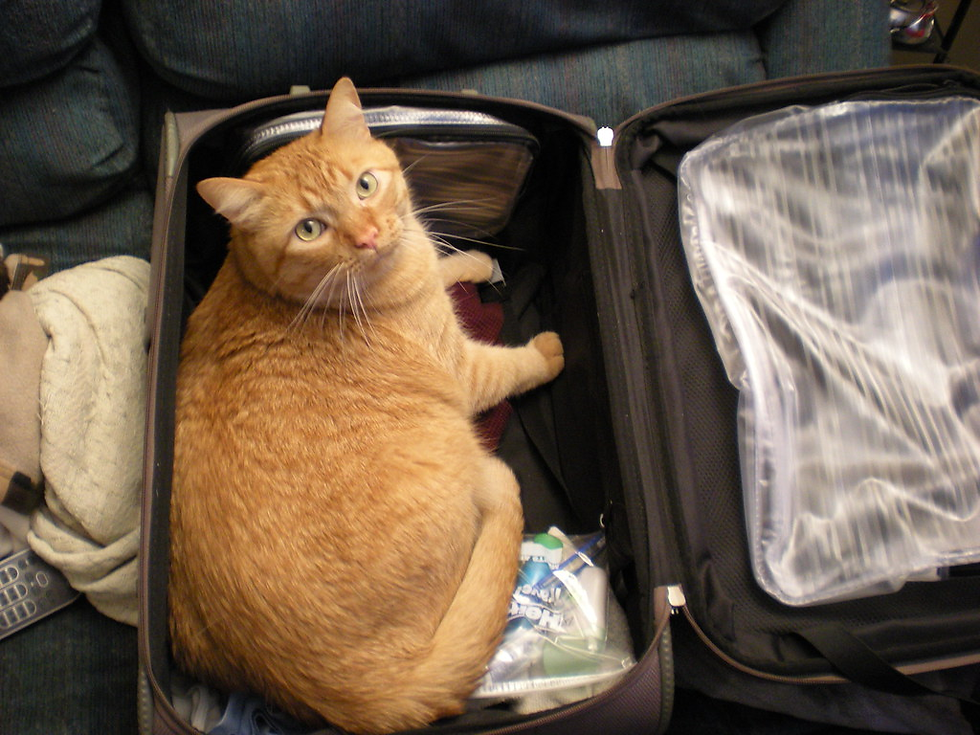Kitty Post: Rehoming a Cat Safely and Compassionately
- Sallie Rhodes
- Oct 30, 2025
- 2 min read

Sometimes, despite our best intentions, circumstances change — illness, housing, job loss, financial strain, or allergies — and you may find yourself needing to rehome a beloved cat. Here’s how to make sure your cat finds a safe, loving, and permanent home.
Exhaust all alternatives first. Before rehoming, check if there are resources to help you keep your cat — like temporary fosters, pet food banks, or low-cost vet care.
Plan ahead. Start researching alternatives as soon as your decide you must rehome your cat. The more time you have, the more likely you will be successful.
Reach out to people you know. The safest and fastest placements often come from within your personal network — friends, relatives, coworkers, neighbors, and members of your church/synagogue/temple/shul/social groups.
Create an honest, appealing profile. Post good photos and a short bio describing your cat’s personality, habits, and needs. Include the cat’s age, gender, health (spayed/neutered, up-to-date on vaccines, etc). Highlight any personality quirks. Describe the type of home best suited for your cat (e.g., quiet/active, good with kids/cats/dogs or no other pets, etc.).
Use reputable rehoming resources. Post on local Facebook groups, Nextdoor, or Petfinder’s “Rehome” program. Try Adoptapet.com (Rehome), Home-Home.org (Post a Pet), and local rescues and no-kill shelters that assist with owner surrenders. Stay away from Craigslist and “free to good home” ads — they can attract unsafe adopters.
Screen potential adopters carefully. Ask questions about the applicant’s lifestyle, pet experience, and living situation. It’s okay to politely decline someone who doesn’t seem like a good match.
Ask for a reasonable rehoming fee (e.g., $50–$100). This discourages people with harmful motives (such as using cats for resale or bait).
Meet safely. Arrange meet-and-greets in your home (have someone with you) or a neutral location. Trust your instincts — if something feels off, it probably is.
Send your cat with their favorites. Include their bed, toys, and a few days’ worth of food to make the transition smoother.
Follow up. Ask for an update after a few days or weeks — most adopters are happy to share photos and reassure you that your cat is happy.
Be patient. The right home is worth the wait!
Join the Beltsville Community Cats’ Leadership Team!
Beltsville Community Cats (BCC) is looking for passionate, community-minded individuals to join our Board of Directors and help lead our lifesaving work!
BCC is a small, all-volunteer nonprofit dedicated to humanely managing and reducing the population of free-roaming cats in Beltsville (20705) and several neighborhoods in 20740. Through our three core programs — TNVR (Trap, Neuter, Vaccinate, Return), Rescue, and Colony Support — we make a real difference for local cats and the people who care about them.
We’re seeking people who want to take an active role in shaping BCC’s future — helping with planning, outreach, fundraising, and community engagement. Whether you bring leadership experience, organizational skills, or simply a strong desire to help animals, there’s a place for you on our team.
If you’re ready to make a meaningful impact in your community, we’d love to hear from you! Email President@beltsvillecats.net to learn more or express your interest.




Comments